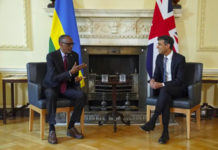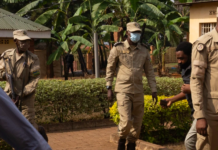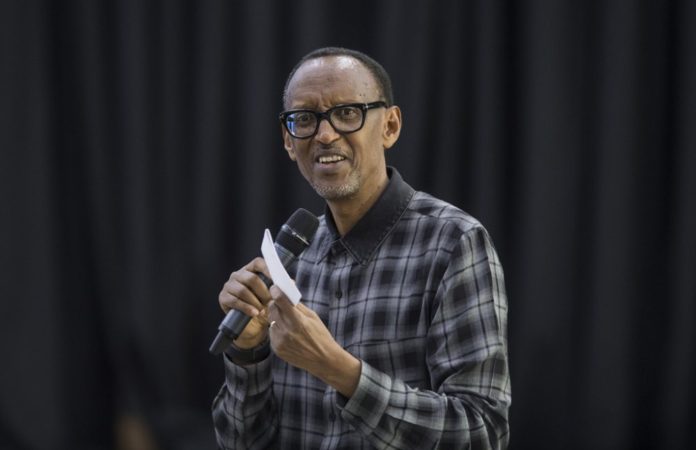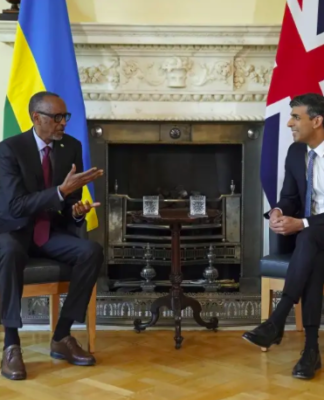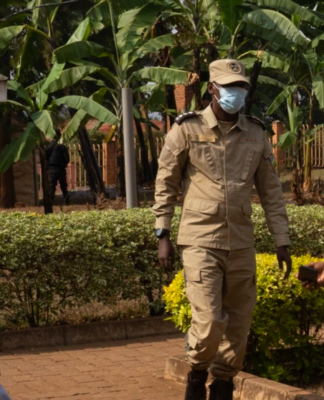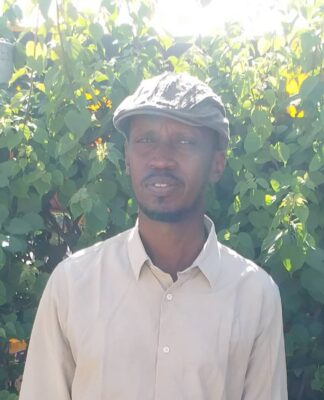By The Rwandan Lawyer
Introduction
Tailor-made means made to fit the needs or specifications of a particular situation, object, or person—or seeming as though it was made that way. In its most literal sense, tailor-made is used to describe a piece of clothing made by a tailor, especially a suit. A tailor-made garment like this is made specifically to the measurements of the person that it’s for so that it fits them perfectly. This means that it’s one of a kind, as opposed to clothes that are produced in general sizes (often described as ready-to-wear or off-the-rack).
But describing something as tailor-made doesn’t necessarily mean it was made by a tailor. Things other than clothing can be tailor-made. In many cases, it’s simply another way of saying it was custom-made made to unique specifications. Tailor-made can also be used as the past tense of the verb tailor-make, meaning to make in a way that fits a specific situation, as in They didn’t have the replacement part I needed, so I tailor-made one. Less commonly, tailor-made can be used as a noun referring to a tailor-made item, as in Here is my collection of tailor-mades.
Sometimes, the term is used to describe something as seemingly a perfect fit for a person or a situation, even though that thing has not been made specifically for them or even made at all, as in Today’s weather is tailor-made for this hike. This last sense seems to adequate with Taylor-made laws meaning that a given legal text was enacted in order to arrange a case of someone by just establishing criteria he/she fulfills. the present article point out different situations whereby the Rwandan legislator adopted which were implicitly aiming to regularize an appointment of an official who otherwise may be excluded because not complying with requirements.
1.Paul Kagame, vice-president of the republic
The post-genocide Rwandan government took office in Kigali in July 1994. It was based loosely on the Arusha Accords, but Habyarimana’s party, MRND was outlawed. The positions it had been assigned were taken over by the RPF. The military wing of the RPF was renamed as the Rwandan Patriotic Army (RPA), and became the national army. Paul Kagame assumed the dual roles of Vice President of Rwanda and Minister of Defence while Pasteur Bizimungu, a Hutu who had been a civil servant under Habyarimana before fleeing to join the RPF, was appointed president. Bizimungu and his cabinet had some control over domestic affairs, but Kagame remained commander-in-chief of the army and was the de facto ruler of the country. Deutsche Welle stated that “Bizimungu was commonly seen as a placeholder for Kagame.
n the late 1990s, Kagame began to disagree publicly with Bizimungu and the Hutu-led government in Rwanda. Kagame accused Bizimungu of corruption and poor management, while Bizimungu felt that he had no power over appointments to the cabinet and that the National Assembly was acting purely as a puppet for Kagame. Bizimungu resigned from the presidency in March 2000. Historians generally believe that Bizimungu was forced into resigning by Kagame, having denounced the National Assembly and attempted to sow discord within the RPF. However, Kagame told Kinzer that he was surprised by the development saying that he had received the “startling news” in a phone call from a friend. Following Bizimungu’s resignation, the Supreme Court ruled that Kagame should become acting president until a permanent successor was chosen.
Kagame had been de facto leader since 1994, but had focused more on military, foreign affairs and the country’s security than day-to-day governance. By 2000, the threat posed by cross-border rebels was much reduced and when Bizimungu resigned, Kagame decided to seek the presidency himself. The transitional constitution was still in effect, which meant the president was elected by government ministers and the national assembly rather than by a direct election.
The RPF selected two candidates, Kagame and RPF secretary general Charles Murigande; the ministers and parliament elected Kagame by eighty-one votes to three. Kagame was sworn in as president in April 2000. Several Hutu politicians, including the prime minister Pierre-Célestin Rwigema, left the government at around the same time as Bizimungu, leaving a cabinet dominated by those close to Kagame. Bizimungu started his own party following his resignation, but this was quickly banned for “destabilising the country”. He was subsequently arrested and convicted of corruption and inciting ethnic violence, charges which human rights groups said were politically motivated. He was imprisoned until 2007, when he was pardoned by Kagame.
2.Chief justice and deputy as well as prosecutor general and deputy
2.1.Constitution of 04 June 2003
Article 147 of the constitution of 04 June 2003,The President and Vice-President of the Supreme Court are elected by the Senate for a single term of eight years by simple majority vote of members from two candidates in respect of each post proposed by the President of the Republic after consultation with the Cabinet and the Supreme Council of the Judiciary. They are appointed by a Presidential order within eight days of the vote of the Senate. They shall be holders of at least a Bachelor of Laws degree and have working experience of fifteen years in the legal profession and proven ability of management at high-levels of institutions. Holders of doctoral degrees in law shall have at least seven years of experience in the legal profession. They may be removed from office on account of undignified behavior, incompetence or serious professional misconduct upon the petition of three fifths of either the Chamber of Deputies or the Senate and a two-thirds majority vote of each Chamber.
This rule was also applied to the Prosecutor General of the Republic and the Deputy Prosecutor General of the Republic as far their working experience is concerned.
2.2.Amendments n° 1 and nº 2 of 02/12/2003
As per Article 147 of this new constitution amending that of 04 June 2003, the President and Vice-President of the Supreme Court are elected by the Senate for a single term of eight years by simple majority vote of members from two candidates in respect of each post proposed by the President of the Republic after consultation with the Cabinet and the Supreme Council of the Judiciary.
They are appointed by a Presidential order within eight days of the vote of the Senate.
They shall be holders of at least a Bachelor of Laws degree and have working experience of eight (8) years in the legal profession and proven ability of management at high-levels of institutions. Holders of doctoral degrees in law shall have at least five (5) years of experience in the legal profession.
They may be removed from office on account of undignified behavior, incompetence or serious professional misconduct upon the petition of three fifths of either the Chamber of Deputies or the Senate and a two-thirds majority vote of each Chamber.
Likewise, the amendment impacted on recruitment of head of the public prosecution. Article 161 of the Amendment n° 2 of 08/12/2005 established that the National Prosecution Service is a single institution. It shall comprise the Office of the Prosecutor General of the Republic, prosecution at the High Instance and Grass-root Tribunal levels.
The Office of the Prosecutor General shall comprise the Prosecutor General, the Deputy Prosecutor General and Prosecutors with jurisdiction over the whole country.
The Prosecutor General and the Deputy Prosecutor General shall be holders of at least a Bachelor of Laws and have working experience of eight (8) years in the legal profession, and proven ability of management of high-levels of institutions. Holders of doctoral degrees in law shall have at least five (5) years of experience in the legal profession.
3.Analysis of the tailor-made nature of Rwandan laws and policies
The qualification of tailor-made laws or tailor-made policies fit exactly with the Rwandan case singled out above. Indeed, when RPF won the war, General-Major Paul Kagame preferred the post of vice-president and minister of defence seemingly as a provisional internship before taking the post of head of state and when Bizimungu was forced to leave the position after parliamentary scheming unanimously disqualifying him imputing to him foolish decisions he took while really he was obliged to do so by his deputy who was seen as the iron man of Rwanda.
When Paul Kagame accessed to the power replacing the weakened ex-president, automatically, the post of vice-president disappeared to finally deduct that the new chief did not need a twice who may interfere in the decision-making while he does not share power with anyone. Selfishly, the post of vice-president was created especially for him to be accustomed with the presidency before maliciously seizing it and when he reached the post he aspired to, the former position was useless.
During the judicial reform of 2003/2004, the regime selected Cyanzayire Aloysie and Gahima Gerard as chief justice and deputy on one side and on the other side Mucyo Jean de Dieu and Ngoga Martin as prosecutor general and deputy respectively. When adopting the constitution of 04 June 2003, there was found out that they were not fulfilling the requirements given that the constitution was requiring a working experience of 15 years while Mucyo Jean de Dieu had 12; Cyanzayire Aloysie 13 to have graduated from university of Rwanda in 1990 and 1989 respectively.
By the first amendment and the second amendment of the constitution the years of experience were lowered to 8 years to arrange the legitimacy of those officials who were unduly appointed because not fulfilling the experience criterium. Instead of searching for other lawyers more experienced, the regime maintained those who were poorly skilled but politically preferred and addressed legal impediments.
without delaying in the analysis, the two amendments of the constitution of 04 june 2003 were taylor-made in favor of the heads of supreme court and of the public prosecution.
CONCLUSION
To sum up, tailor-making laws and policies is an indicator of non democratic regimes whereby the regime exercises nepotism, favoritism for its relatives, friends, concubines, mistresses, partisans, excluding citizens deserving those posts but judged undesirable all that paradoxically violating the provisions of 27of the constitution of 2003 as revised in 2015 according to which All Rwandans have the right to participate in the Government of the country, either directly or through their freely chosen representatives, in accordance with the law. All Rwandans have the right of equal access to the public service in accordance with their competence and abilities. Worse, they practice discrimination by avoiding suitable candidates and preferring subjectively those who really are incompetent if objectivity was considered infringing also the requirements of article 16 of the same constitution stating that All Rwandans are born and remain equal in rights and freedoms. Discrimination of any kind or its propaganda based on, inter alia, ethnic origin, family or ancestry, clan, skin color or race, sex, region, economic categories, religion or faith, opinion, fortune, cultural differences, language, economic status, physical or mental disability or any other form of discrimination are prohibited and punishable by law.

